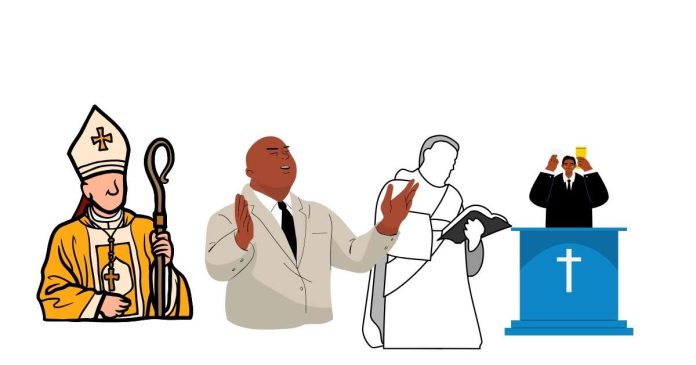The word “pastor” is commonly associated with religious leaders, particularly in Christian communities, where it refers to a minister, preacher, or shepherd of a congregation. While “pastor” is a widely recognized term, it can appear in various other forms depending on the context, usage, or language. In this article, we’ll explore the different ways the word “pastor” can be written or referred to, highlighting its versatility in both religious and linguistic contexts.
1. Pastor as “Minister”
In many Christian traditions, especially Protestant denominations, the word “minister” is used interchangeably with “pastor”. The term “minister” refers to a person authorized to perform religious duties and ceremonies, such as leading worship services, preaching, and providing spiritual guidance. In this sense, both “minister” and “pastor” denote a leader of a congregation.
- Example: “The minister gave a sermon on faith and compassion.”
While “pastor” often emphasizes the role of a shepherd or caretaker of a congregation, “minister” can be used more broadly to include a variety of religious leadership roles.
2. Reverend
The title “Reverend” is another form associated with the role of a pastor, although it is more of an honorific than a functional term. “Reverend” is used to show respect for clergy members, and it is often used as a prefix before the name of the pastor.
- Example: “Reverend John Smith will be leading the Sunday service.”
“Reverend” is commonly used in many Christian denominations, especially in Anglican, Methodist, and Catholic traditions, to address or refer to pastors, ministers, and priests.
3. Priest
While “priest” is more commonly associated with Roman Catholic, Orthodox, and some Anglican denominations, it can sometimes be used interchangeably with “pastor” in certain contexts, particularly when the pastor performs sacramental duties such as administering the Eucharist or offering confession. In many Christian faiths, “priest” refers to clergy who have received a particular ordination and have specific liturgical responsibilities.
- Example: “The priest will lead the mass at noon.”
However, the use of “priest” can vary significantly depending on the Christian denomination, and it is not always synonymous with “pastor”.
4. Shepherd
The term “shepherd” is sometimes used metaphorically to describe a pastor’s role. Derived from the biblical metaphor of a shepherd caring for their flock, “shepherd” emphasizes the pastoral care and guidance that a pastor provides to their congregation. In this context, the pastor is seen as a guide, protector, and caretaker of the spiritual well-being of their community.
- Example: “The shepherd of the church provides spiritual guidance to all members.”
The metaphor of the shepherd is particularly common in Christian theology, referencing Jesus Christ as the “Good Shepherd” (John 10:11) and the role pastors play in guiding their flock.
5. Clergyman/Clergywoman
The terms “clergyman” and “clergywoman” are gender-specific alternatives for referring to a pastor. They are used to describe any member of the clergy, including pastors, ministers, and priests. These terms are more general and do not refer to a specific denomination or leadership function, but they can be used as synonyms for “pastor” in some contexts.
- Example: “The clergyman performed the wedding ceremony.”
While these terms are still in use, “pastor” and “minister” are often preferred in modern usage for gender-neutral and more specific references to religious leaders.
6. Evangelist
In certain Christian traditions, especially in Pentecostal and Evangelical communities, the term “evangelist” is used to describe a pastor whose primary role is to preach or evangelize, often traveling to different locations to spread the gospel. An evangelist typically has a more itinerant ministry and focuses on bringing people to faith.
- Example: “The evangelist spoke at several churches during the mission trip.”
While an evangelist may have a similar function to a pastor, the emphasis is on the preaching and spreading of religious teachings.
7. Bishop
In denominations such as Anglicanism, Roman Catholicism, and Eastern Orthodoxy, the term “bishop” refers to a higher-ranking clergy member who oversees a group of congregations or a diocese. Though a bishop may not serve as a pastor in the day-to-day ministry of a single congregation, they are responsible for ordaining pastors and providing spiritual oversight to a broader region.
- Example: “The bishop will visit the churches in the diocese this weekend.”
While a bishop may not always perform the same role as a pastor, they are still a significant figure in Christian religious leadership.
8. Chaplain
A chaplain is a clergy member who serves in a specific institution, such as a hospital, military, or prison, providing spiritual care and guidance. While chaplains may hold a role similar to that of a pastor, they are specifically assigned to minister to a particular group of people within an institution, rather than leading a traditional congregation.
- Example: “The chaplain provided comfort to the soldiers before their deployment.”
9. Lay Pastor
A lay pastor refers to a person who performs pastoral duties but is not officially ordained or trained as a traditional clergy member. Lay pastors often lead smaller congregations or assist ordained pastors in performing services, preaching, and providing spiritual care.
- Example: “The lay pastor led the Bible study group.”
Conclusion
The term “pastor” can be expressed in various forms, depending on the religious tradition, leadership function, or role being described. These include titles such as minister, reverend, priest, shepherd, clergyman/clergywoman, evangelist, bishop, chaplain, and lay pastor. Each term reflects a unique aspect of pastoral work or religious leadership and may be used interchangeably with “pastor” in specific contexts. .


